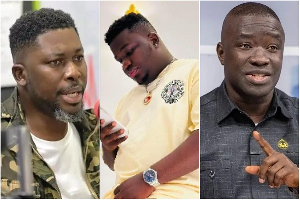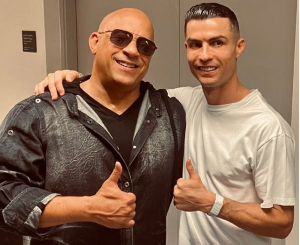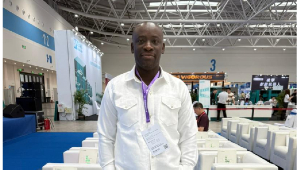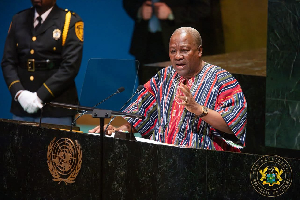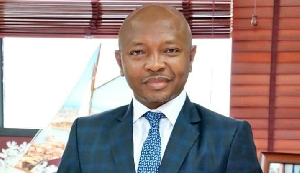Opinions of Thursday, 17 September 2015
Columnist: Adofo, Rockson
Are Togolese Nationals Eligible to Register to Vote in Ghana Elections?
Recently, there have been people making real hullabaloos in public and in the media about whether or not foreigners, more precisely, those from the surrounding neighbouring countries have the right to exercise their suffrage (franchise) in Ghana. To make myself readily understandable to all readers across the various acquirable educational skill levels and even to non-formally educated persons, I shall be defining certain words and terms as we go along and as the occasion may demand.
What is suffrage, one may want to know? Suffrage is defined as "the ?right to ?vote in an ?election, ?especially to ?vote for ?representatives in a ?government: ?universal suffrage (= the ?right of all ?adults to ?vote)".
Who then in Ghana has the right to register on the nation's voter register to exercise that right or franchise? Is it Ghanaians, foreigners or both? In the Western advanced countries where I domicile, only citizens of the country who are of voting age and are of sound mind as may be required by their law, are allowed to register to vote for representatives in government.
In the United Kingdom, recognised legal immigrants (foreigners) are allowed to register but they can only vote for local councillors. They only participate in Local Council (Local government) elections but not national parliamentary or presidential elections.
In like manner, only citizens of Ghana, but not foreigners, have the right to register to vote in national elections for representatives in government. Who then is a foreigner? A foreigner is defined as "a person not native to or naturalized in the country or jurisdiction under consideration" Who is a citizen? A citizen is "a native or naturalized member of a state or nation who owes allegiance to its government and is entitled to its protection (distinguished from alien)".
Who is finally a Ghanaian? I would for the sake of clarity, have quoted extensively from WIKIPEDIA on Ghanaian Nationality Law to buttress my argument but for lack of space and time, I will refer readers to Article 003 of the Ghana 1992 Constitution and the underlying web link.
https://en.wikipedia.org/wiki/Ghanaian_nationality_law
However, it must be noted that Ghanaian nationality is acquired by birth in or outside Ghana and by descent where either one of one's parents, grandparents or great-grandparents is or was a Ghanaian; through adoption by a Ghanaian, through naturalisation or by registration.
From the laid down conditions under which one can genuinely make a claim to Ghanaian citizenship and hence be eligible to register to vote in Ghana national elections, it is nowhere stated that one is an automatic Ghanaian for the fact of belonging to an ethnic group that unfortunately finds itself divided among two sovereign countries with him or herself found in the other country.
Some people are of the erroneous belief that for the fact of say, Ewes being found in both Ghana and Togo, or Akans (Bonos) in both Ghana and Ivory Coast, regardless of being separated by internationally recognised border demarcations, it still naturally bestows upon them dual Ghanaian and Togolese or Ghanaian and Ivorian citizenships, respectively.
It is intellectual dishonesty if not utter exhibition of ignorance by anyone, especially those claiming to be learned, and are in possession of doctorate degrees in various academic disciplines to argue blindly, assigning dual citizenship to same ethnic group members no matter which side of the international border divide, thus, country, they find themselves in.
As there is no existing international law that grants automatic dual citizenship to members of same ethnic group who find themselves divided between two countries, same is true with Ghana. There is no any such law found in Ghana's statute books. It stands therefore to disprove the belief among the Ewe communities that they hold dual Ghanaian and Togolese citizenship and hence can register to vote in national elections in both Togo and Ghana if they choose to. Those born and are living in Togo are purely Togolese. Similarly, those Ewes born and are living in Ghana are Ghanaians according to the objective of the Trans Volta Togoland (TVT) plebiscite of Wednesday 9 May 1956.
The underlying web link takes you to a nice explanatory publication on Trans Volta Togoland by one Kofi Amenyo published on Friday 9 May 2008. It does however not venture into the issue of dual citizenship.
http://www.ghanaweb.com/GhanaHomePage/features/Trans-Volta-Togoland-and-the-refuseniks-of-the-union-with-Ghana-143373
Dual Citizenship is acquired by application and registration with subsequent form of proof issued. One has to submit an application to the relevant authorities of the nation of which he wants to become its citizen if they are originally citizens of another country. One cannot claim to be a dual citizen simply by word of mouth or for merely being a victim of "population and border overhang".
There are native German-speaking people in Austria and Switzerland. There are native French-speaking people in Switzerland and Belgium. However, in the cited nations, the native German-speaking people do not go to register to vote in Germany's national elections nor the native-speaking people found in Switzerland and Belgium go to vote in France's national elections because they were once Germans or French separated from their bigger German or French nationals by erection of borders separating countries into sovereign nations. Although victims of borders, the native German-speaking people in Austria, and the native French-speaking people in Switzerland and Belgium are happy and proud to be Austrians, Swiss and Belgians respectively.
"Native speakers of German (chiefly Swiss German, though Standard German is also understood) number about 4.6 million (64%); for French (mostly Swiss French, but including some Arpitan dialects) they number 1.5 million (20%); for Italian (mostly Swiss Italian, but including Lombard dialects), 500,000 (6.5%); and for Romansch, 35,000 (0.5%)" – WIKIPEDIA on Languages of Switzerland.
They do not see themselves as automatic dual citizens with inalienable right to register to vote in Germany or in France where their kindred tribes are in majority. Why then do the Ewes or other people that find themselves in similar situations in Africa think they are automatic dual citizens? Is it because we lack civilization and understanding in Africa more than the Europeans do?
"Multiple citizenship, also called dual citizenship or multiple nationality, is a person's citizenship status, in which a person is concurrently regarded as a citizen of more than one state under the laws of those states. There is no international convention which determines the nationality or citizen status of a person, which is defined exclusively by national laws, which vary and can be inconsistent with each other. Multiple citizenship arises because different countries use different, and not necessarily mutually exclusive, criteria for citizenship" – WIKIPEDIA.
In Ghana, one does not become a dual citizen of the nation without fulfilling the obligations of the applicable laws. Simply belonging to an ethnic group of which its members spread across the borders of two nations does not confer on anyone automatic dual citizenship.
The fact of crossing borders on daily basis to do business or earn a living in Togo and then return to Ghana at night to sleep does not make one a citizen of both countries. If trading or doing business in both countries, thus frequenting them so often could grant one dual citizenship or the right to register to vote in the two countries, then all Ghanaians frequenting China, Europe and America or Dubai doing business could automatically become citizens of those countries with the right to exercise their franchise there. But that is not the case and will never be!
CONCLUSION
From the foregoing, it is absolutely wrong and unconstitutional for anyone from Togo, Burkina Faso and Ivory Coast to presume they can exercise their suffrage in Ghana without officially been recognised and issued a certificate to that effect by a competent body as may be elected by government, and permitted by Ghana nationality laws. Subsequently, I support the establishment of a new voter register pruned of all foreign nationals and ghost names.
I shall be back again but hopefully much stronger, God willing.
Rockson Adofo


